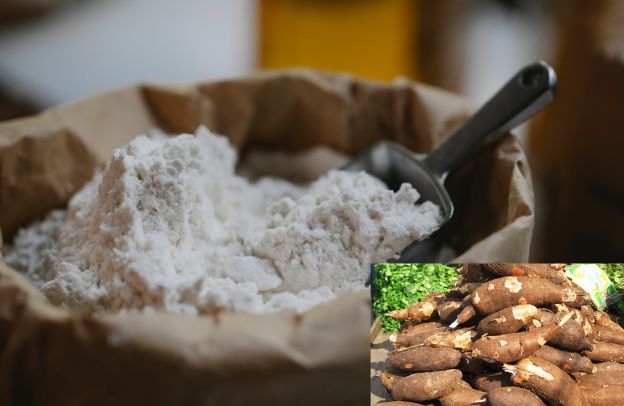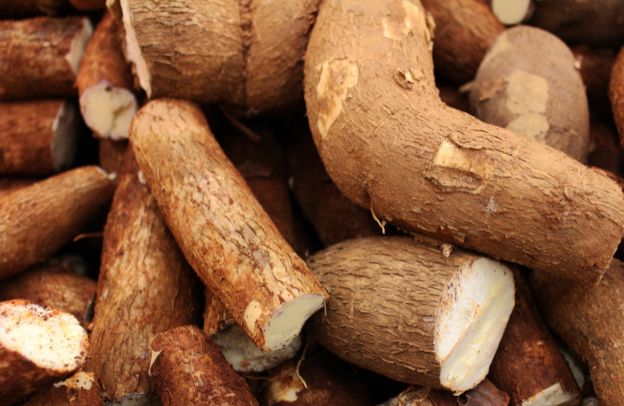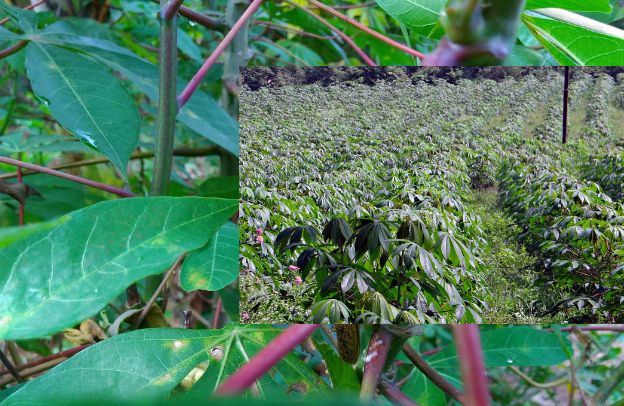Cassava Processing and Value Addition: Creating More Opportunities for Nigerian Farmers

Are you a cassava farmer in Nigeria looking to increase your income and access new market opportunities? Look no further than cassava processing and value addition! By processing and adding value to your cassava products, you can not only reduce post-harvest losses but also tap into the growing demand for value-added cassava products.
Discover how you can take advantage of this opportunity and transform your cassava farming business.
Cassava is a staple crop in Nigeria and has been recognized as one of the most important crops for food security and poverty alleviation in the country. It is widely grown by small and medium-scale farmers who rely on it for their livelihoods. However, the full potential of cassava has not been fully realized due to limited value addition and processing.
In this article, we will explore the benefits of cassava processing and value addition for small and medium-scale farmers in Nigeria, the various processing techniques, value addition opportunities, challenges, and solutions, and the future outlook for cassava processing and value addition in Nigeria.
The Benefits of Cassava Processing and Value Addition
Cassava processing and value addition have several benefits for small and medium-scale farmers in Nigeria. Firstly, it improves the shelf life and marketability of cassava products. Cassava is highly perishable and has a short shelf life, which limits the marketability of the product. However, through processing and value addition, cassava products can be preserved for a longer period, making it easier to market and sell.
Secondly, cassava processing and value addition increase profitability and income for farmers. Processed cassava products such as garri, fufu, and cassava flour have a higher value than raw cassava, which means that farmers can earn more from their cassava produce.
In addition, value-added cassava products are in high demand in Nigeria and globally, which creates more market opportunities for farmers.
Finally, cassava processing and value addition reduce post-harvest losses. Cassava is susceptible to spoilage, pests, and diseases, which can cause significant losses for farmers. However, through processing and value addition, farmers can utilize cassava in various forms and reduce the risk of spoilage and losses.
Cassava Processing Techniques
There are several cassava processing techniques that farmers can use, depending on their scale of operation and resources available. Traditional methods such as sun-drying, manual grating, and hand-squeezing are still widely used by small-scale farmers. However, modern cassava processing techniques such as mechanical grating, hydraulic pressing, and flash drying are becoming more popular among medium-scale farmers.
While traditional methods are cheaper and more accessible, modern processing techniques are more efficient, produce higher-quality products, and have a higher output capacity. However, modern processing techniques require significant capital investment, which may not be feasible for small-scale farmers.
Value Addition Opportunities for Cassava Products
Cassava has several value-addition opportunities that small and medium-scale farmers can explore. Garri, fufu, and cassava flour are the most common value-added cassava products in Nigeria. Garri is a popular staple food in Nigeria and is made by fermenting and roasting cassava.
Fufu is a starchy food that is made by pounding boiled cassava, plantain, or yam. Cassava flour is used as a substitute for wheat flour in baking and cooking.
Other value-added cassava products that farmers can explore include cassava chips, starch, and ethanol. Cassava chips are used as animal feed or snack food, while cassava starch is used in the food, pharmaceutical, and textile industries. Ethanol is a biofuel that is produced from cassava and is used as a renewable energy source.
Challenges and Solutions
Small and medium-scale cassava farmers in Nigeria face several challenges that limit their ability to process and add value to their cassava products. These challenges include limited access to finance, inadequate infrastructure, and limited knowledge of modern processing techniques.
To overcome these challenges, farmers can seek financing from government agencies or private sector investors to invest in modern processing equipment. They can also collaborate with research institutions and extension agents to improve their knowledge and skills in modern cassava processing techniques.
Furthermore, farmers can work together to form cooperatives or associations to pool resources and share processing equipment.
Government agencies can also support small and medium-scale cassava farmers by providing access to finance and infrastructure, creating policies that encourage investment in cassava processing and value addition, and promoting research and development in cassava processing.
Private sector companies can also play a role in supporting cassava farmers by investing in modern processing equipment, providing market opportunities for value-added cassava products, and collaborating with farmers to improve their production and processing practices.
Collaboration and partnerships between government agencies, private sector companies, and small and medium-scale cassava farmers are essential to overcome the challenges and realize the full potential of cassava processing and value addition in Nigeria.
Future Outlook
The future outlook for cassava processing and value addition in Nigeria is promising. With the growing demand for value-added cassava products, small and medium-scale farmers have an opportunity to increase their income and improve their livelihoods. In addition, modern cassava processing techniques and value-addition opportunities are becoming more accessible and affordable for farmers, which will contribute to the growth of the cassava industry in Nigeria.
Moreover, the Nigerian government has recognized the importance of cassava processing and value addition and has launched several initiatives to support the sector. The Federal Ministry of Agriculture and Rural Development has developed a Cassava Transformation Agenda, which aims to increase cassava production, processing, and value addition in the country.
Conclusion on Cassava Processing and Value Addition: Creating More Opportunities for Nigerian Farmers
Cassava processing and value addition have significant benefits for small and medium-scale farmers in Nigeria. By processing and adding value to their cassava products, farmers can improve their income, reduce post-harvest losses, and access new market opportunities.
However, several challenges need to be addressed, including limited access to finance and infrastructure, and inadequate knowledge of modern processing techniques.
To overcome these challenges, collaboration, and partnerships between government agencies, private sector companies, and small and medium-scale cassava farmers are essential. With the right support and investment, the cassava industry in Nigeria has the potential to contribute significantly to the country’s economic growth and food security.





